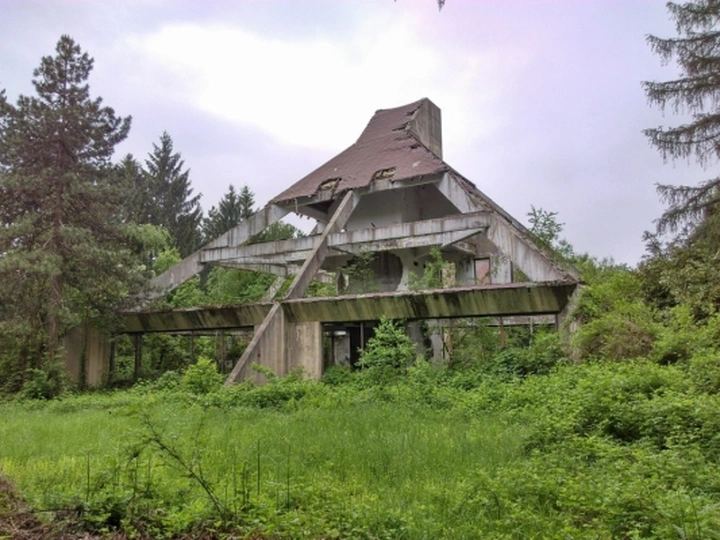Mountain houses, mountain homes

Marisa Cortright is an independent architectural historian, writer, and researcher based in Zagreb, Croatia. She holds degrees in urban and architectural history from Barnard College and the Bartlett School of Architecture.
As a Guest Researcher at ArkDes in Stockholm in 2023-24, Marisa’s research focused on the unknown but prolific career of Swedish architect, designer, and curator Susanne Wasson-Tucker. Cortright was the 2023 Guest Editor of the Avery Review at the Columbia University GSAPP in New York, for whom she commissioned an essay from the Alternative Building Industry Collective. ARCH+ published her piece “Schlimmer geht immer” about architectural workers emigrating from the southeastern periphery of Europe to the German-speaking core in 2022. In 2021, she published a book of essays, “‘Can This Be? Surely This Cannot Be?’ Architectural Workers Organizing in Europe" with the VI PER Gallery in Prague. In 2019, she published the article “Death to the Calling: A Job in Architecture is Still a Job” in Failed Architecture. She has lectured on contemporary architectural work at TU Vienna, the Austrian Association for Architecture, EPFL Lausanne, HEAD Geneva, the Galerie Architektury Brno, and University College Dublin.
Marisa is a member of the Croatian national trail running team.
2024 marks the 150th anniversary of organized hiking in Croatia, an occasion celebrated by hikers gathering at planinarski domovi (mountain lodges, or literally mountain houses or homes). By offering temporary shelter, as well as food and drinks, mountain lodges form the infrastructural foundation that ensures safe and pleasant trips into remote and wild regions.
Local hiking societies are the typical caretakers of the lodges, maintaining the buildings and hosting hikers. Despite their efforts, several lodges have fallen into disrepair and abandonment. This project explores the potential for the renovation of disused mountain lodges to model a non-extractive infrastructure of leisure and sustenance in a country seeking to reorient its economy towards ‘sustainable tourism.’
This study into mountain lodges intersects with popular interest in and scholarship on ex-Yugoslav architectural heritage, especially abandoned and destroyed memorials for the partisan resistance to fascism during WWII. Tourist pilgrimages to such relics are formalized in hiking routes, including to the Spomen-dom Bratstva i jedinstva (Memorial House of Brotherhood and Unity) at Čavić brdo.
Through research, interviews, and writing, this project will focus on three case studies in Gorski kotar, a mountainous region between Istria, Slovenia, and the city of Rijeka. Two lodges are closed and in disrepair: Schlosserov dom (Schlosser’s house) and Planinarski dom Snježnik. The third, Planinarski dom Hahlić, has been renovated twice since being built in 1926. How has Hahlić succeeded, while Schlosserov and Snježnik - called the ‘pearl of mountain architecture’ - await such attention?
How might the renovation of abandoned mountain infrastructure not only serve to make tourism in Croatia more sustainable - less resource-intensive, but also less destructive to local communities - as well as re-imbue it with the ethos of ‘društveno vlasništvo’ (public ownership) with which it was built?